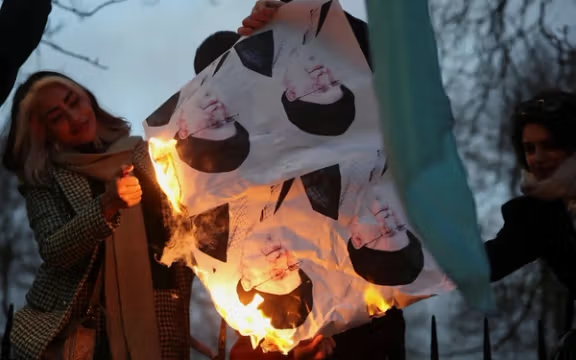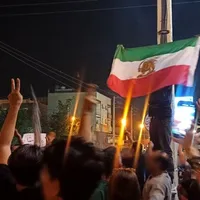Just four years after being barred from running for president, Larijani is now the secretary of Iran’s Supreme National Security Council (SNSC) and, more crucially, the Supreme Leader’s personal representative on the body.
The dual appointment has sparked sharp reactions across the political spectrum, including renewed focus on the Guardian Council, which twice disqualified him from presidential races, most recently in 2024.
“The serious question on the public’s mind is: how can someone the Guardian Council deemed unqualified to run for president now be appointed to one of the most sensitive national security posts?” Tejarat News, a leading economic outlet, asked in an editorial.
Arbitrary decisions
The Guardian Council, a 12-member unelected body dominated by conservatives, plays a central role in shaping Iran’s political landscape.
Half its members are clerics appointed by the Supreme Leader; the rest are jurists nominated by the judiciary and approved by parliament.
Beyond reviewing legislation, the Council wields sweeping authority over elections—most notably through its opaque candidate vetting process.
Chaired for 33 years by the 98-year-old Ahmad Jannati, it routinely disqualifies candidates on vague grounds like “insufficient commitment to Islam” or lack of loyalty to the system.
Vocal academic and commentator Sadegh Zibakalam addressed the contradiction in a pointed post on X:
“Can we ask the esteemed Guardian Council whether this Dr. Ali Larijani, just appointed as SNSC secretary, is not the same one you disqualified? What are your criteria for qualification?”
Power struggle
The sheer breadth of reactions—from hardline outlets to reformist critics—reflects how sensitive the appointment is, and how contested internal power struggles remain despite Khamenei’s central authority.
Among conservatives, Farhikhtegan welcomed the move:
“Veteran Larijani’s return to the center of national security after 20 years invites optimism, especially early on, given his rhetorical skill and foreign policy experience. This could mark the restoration of Iran’s national interests from a moderate standpoint.”
The IRGC-affiliated Javan highlighted his ability to bring order and coherence to a fragmented security apparatus.
Even Vatan-e Emrooz, aligned with the hardline Paydari Front, praised the appointment as a chance to instill discipline in decision-making.
Real change, or is it?
Reformist daily Etemad called for clarity and results:
“Will there be substantive change in Iran’s foreign policy, regional diplomacy, and security strategy? Can Larijani foster rational engagement with the world?”
The centrist Ham Mihan remained unconvinced, pointing to his record as nuclear negotiator: “The future of his European engagement remains clouded in ambiguity.”
Khorasan, aligned with Majles Speaker Mohammad Bagher Ghalibaf, warned that Larijani’s allies could use the post to build political capital ahead of upcoming elections.
The reformist outlet Rouydad24 summed up the prevailing uncertainty: "It remains unclear whether Larijani’s return signals a genuine push for reform or simply a reshuffling to reinforce the status quo," a Thursday commentary read.






